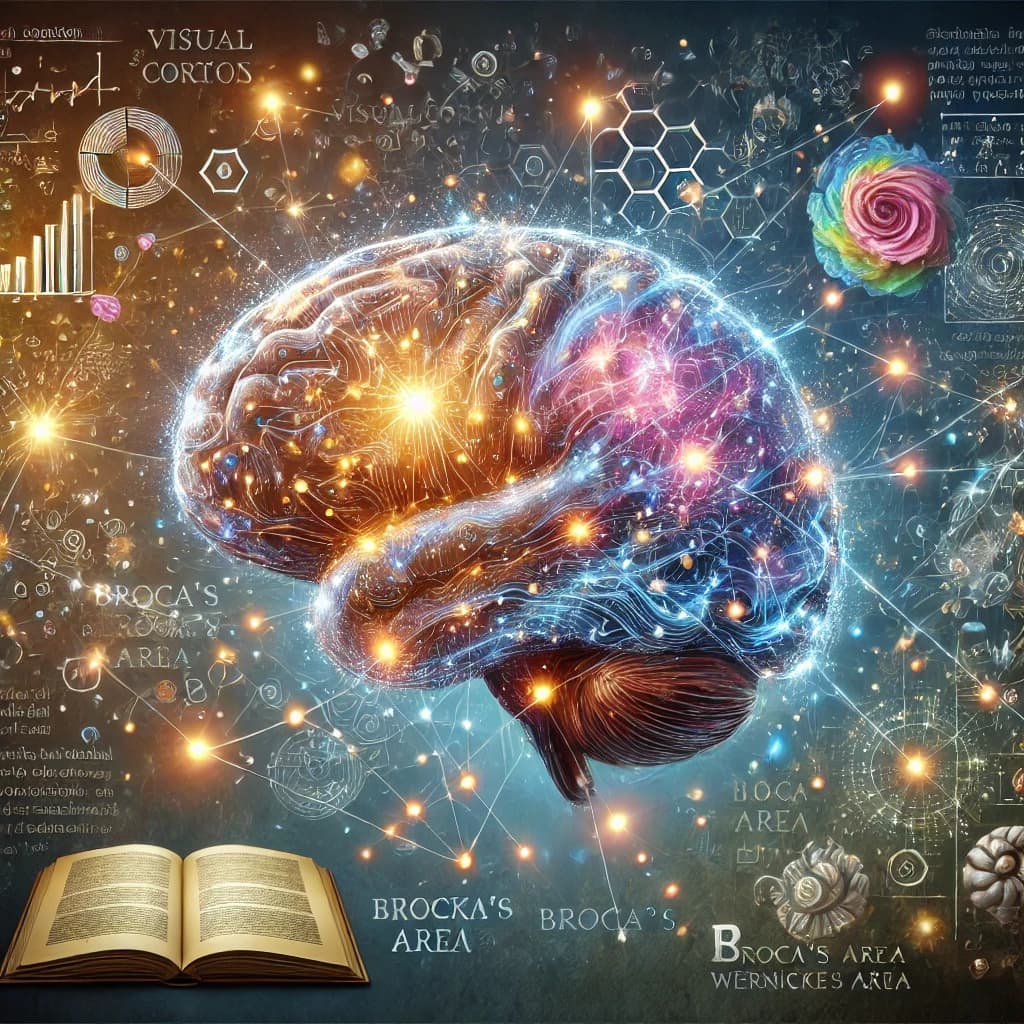Reading is often described as a magical experience, transporting us to distant worlds, introducing us to new ideas, and allowing us to walk in someone else’s shoes. But beneath the magic lies a complex neurological process that activates various regions of the brain, making reading one of the most cognitively engaging activities we can undertake. In this article, we’ll explore the science of reading and what happens to your brain when you immerse yourself in a good book.
The Brain’s Reading Circuitry
When you read, your brain doesn’t treat the text as a series of isolated words. Instead, it creates a dynamic reading network that involves multiple regions working together seamlessly. This process begins in the visual cortex, where the brain recognizes the shapes of letters. The occipital lobe, responsible for visual processing, deciphers these shapes into recognizable letters and words.
Once the brain recognizes a word, it moves to the angular gyrus, a region that plays a key role in language comprehension. The angular gyrus connects the visual input with the auditory system, allowing you to “hear” the words in your mind. This connection is why even silent reading can feel like listening to a story.
Phonological Processing and Comprehension
The brain’s phonological loop is essential for decoding the sounds of language, even when you’re reading silently. This process involves the Broca’s area, located in the frontal lobe, which is associated with speech production. As you read, your brain essentially “says” the words in your head, a phenomenon known as subvocalization. This internal speech helps with comprehension and allows you to process the meaning of the text more deeply.
At the same time, Wernicke’s area, located in the temporal lobe, is hard at work. This region is responsible for language comprehension, allowing you to understand the syntax, semantics, and overall meaning of the text. Together, Broca’s and Wernicke’s areas ensure that you’re not just seeing words, but truly understanding them.
Imagery and Empathy: The Brain’s Response to Storytelling
One of the most fascinating aspects of reading is its ability to evoke vivid mental imagery. When you read descriptive language, your brain’s visual and sensory cortices are activated, almost as if you were experiencing the events firsthand. This activation allows you to visualize scenes, hear sounds, and even imagine smells and textures described in the text.
Moreover, reading fiction, especially stories with rich character development, can enhance empathy. This effect is due to the brain’s mirror neurons, which fire when you observe or imagine another person’s actions or emotions. When you read about a character’s experiences, your brain mirrors those emotions, helping you to empathize with them. This is why reading fiction can increase your ability to understand and relate to others in real life.
The Cognitive Benefits of Reading
Reading is like a workout for your brain. Regular reading has been shown to improve cognitive function, particularly in areas related to memory and critical thinking. The act of processing complex narratives, understanding character motivations, and making connections between different parts of a text strengthens the brain’s neural networks, making it more resilient to aging.
Additionally, reading has been linked to increased brain plasticity—the brain’s ability to adapt and reorganize itself by forming new neural connections. This plasticity is crucial for learning and memory retention, and it’s one of the reasons why lifelong readers often experience slower cognitive decline in old age.
Reading and Stress Reduction
In today’s fast-paced world, stress is a common issue for many people. Fortunately, reading offers a simple and effective way to relax. Studies have shown that reading can reduce stress by up to 68%, even more effectively than listening to music or going for a walk. This stress reduction is likely due to the immersive nature of reading, which allows your mind to escape from the pressures of daily life and enter a state of deep relaxation.
Conclusion: The Power of Reading
The science of reading reveals that this seemingly simple activity is, in fact, a complex and highly beneficial workout for the brain. Whether you’re decoding a challenging text, empathizing with a fictional character, or simply enjoying a well-crafted narrative, your brain is engaging in a dynamic process that enhances cognitive function, reduces stress, and increases empathy.
So, the next time you pick up a book, remember: you’re not just reading for pleasure. You’re also giving your brain a powerful boost that will benefit you in countless ways. Happy reading!




